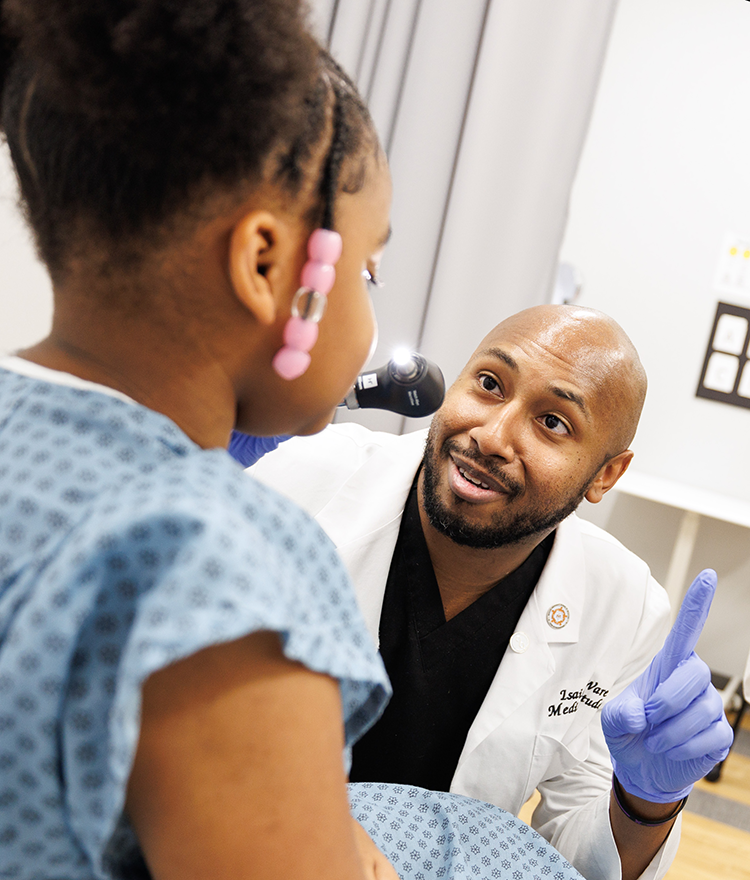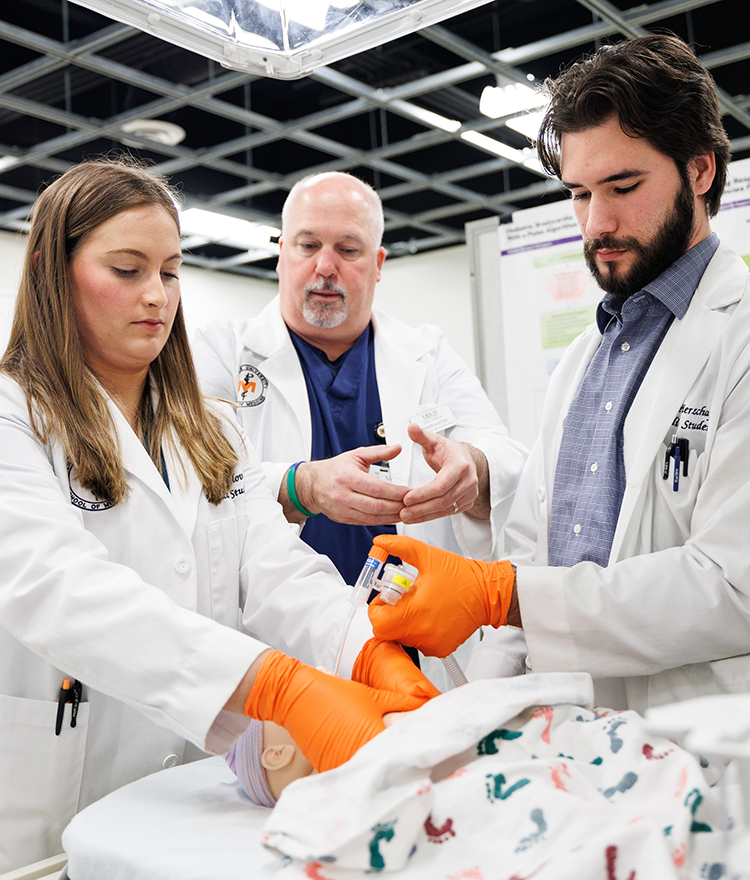Medical Practice
Hands-on clinical training from year one
Mercer’s medical practice curriculum teaches medical students fundamental clinical procedures and vital patient interaction skills. During the first two years, students learn the basic skills necessary for interaction with patients and basic clinical interventions. Simulated learning and standardized encounters allow medical students to practice clinical procedures in a risk-free environment, helping them gain knowledge and confidence for clinical rotations in their third year.

Clinical Skills
In clinical skills practice, students learn the basic skills necessary for patient interactions. These skills include interviewing for medical history and physical examination techniques. Students interview, examine and are graded by standardized patients, individuals trained to realistically portray a particular medical condition.

Simulation Labs
Our simulation program supports experiential learning methodologies provided to medical students, residents, faculty and clinical affiliates. The simulation centers on each of our campuses are equipped with state-of-the-art manikins, task trainers and simulated learning systems.